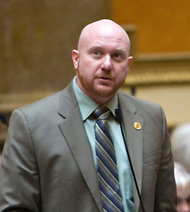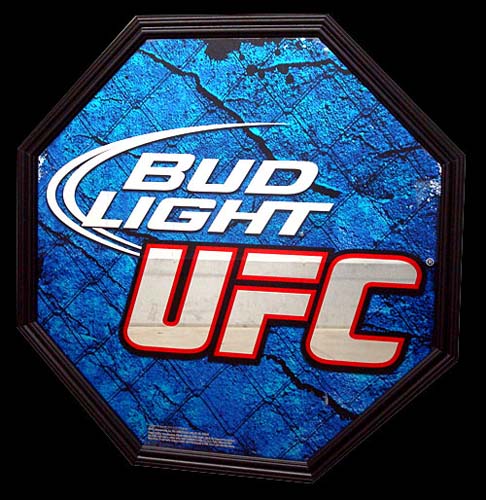In the Doghouse
Search
In the Doghouse
Chicago Transit Authority Sells Out Public Health for Alcohol Ads
March 20, 2012 In an attempt at a budget band-aid, the Chicago Transit Authority (CTA) recently voted to ditch its 15-year ban on alcohol advertising on rail cars and stations. The CTA has agreed to allow up to 30 ‘L’ cars to be outfitted with alcohol-related ads at any given time. Ads will also be placed in various rail stations. In return, the CTAprojects it will get $3.2 million in revenue from Big Alcohol--to close a $277 million shortfall in its budget.
In an attempt at a budget band-aid, the Chicago Transit Authority (CTA) recently voted to ditch its 15-year ban on alcohol advertising on rail cars and stations. The CTA has agreed to allow up to 30 ‘L’ cars to be outfitted with alcohol-related ads at any given time. Ads will also be placed in various rail stations. In return, the CTAprojects it will get $3.2 million in revenue from Big Alcohol--to close a $277 million shortfall in its budget.Outdoor advertising exposes youth to a deluge of alcohol ads on a repeated basis. In particular, ads on public transit are a favorite of the alcohol industry because of their broad public exposure. Restrictions on alcohol advertising are necessary to reduce youth exposure. And the research is clear: the more alcohol ads young people see, the younger they start drinking, the more likely they are to drink, and the more those young drinkers consume.
CTA President Forrest Claypool tried to justify the move, calling their decision "responsible" because the ads won’t be posted in rail stations close to schools, must declare the legal drinking age in Illinois, and must warn about the potential dangers of alcohol consumption. Sounds like the CTA has no problems putting alcohol ads in the neighborhoods where kids get on the rail cars to go to school, after-school care, or work. There is nothing responsible about increasing youth exposure to alcohol ads. Warning labels about legal drinking age or potential dangers are not an evidence-based policy to reduce consumption and related harm. Labels also won't block the messages the industry intends its ads to send: Buy--and drink--this alcohol product.
In addition, the CTA's decision to ditch its longstanding commitment to public health for alcohol ads is shortsighted. The expected $3 million in revenue is a measly drop in the bucket (less than 1%) of the CTA’s$1.24 billion operating budget for 2012. That, plus the increased costs to Chicago residents due to increases in alcohol consumption and related harm, will far outweigh any temporary budget relief the CTA may seek to gain.
Chicago’s young people deserve to ride to school, work, and social activities without being blanketed in promotional messages from alcohol corporations. The CTA should keep its 15-year ban on alcohol ads, and find another way to close its budget gap--one that won't endanger Chicago’s youth.
Utah Bill: State Alcohol Control Commissioners Must Drink
 March 6, 2012
March 6, 2012In a ridiculous example of the extent to which legislators will go to deregulate state alcohol control, Utah Representative Brian Doughty (D-Salt Lake City) has introduced a bill mandating that at least two of the five Alcoholic Beverage Control Commission members drink alcohol at least once a month. Since when are government regulators required to consume or use the product they’re regulating? (Cigarettes? Lottery tickets? Prescription drugs?) They aren't, and shouldn't be--with good reasons.
As stated by the Utah Department of Alcoholic Beverage Control, “the purpose of alcohol control in Utah is to make liquor available to those adults who choose to drink responsibly, but not to promote the sale of liquor. By keeping liquor out of the private marketplace, no economic incentives are created to maximize sales, open more liquor stores or sell to underage persons.” Utah's liquor laws, such as correctly classifying youth-marketed alcopops as distilled spirits, serve to protect public health. It is sound policy that does not need to be"fixed."
Promoting so-called “progressive” liquor laws in Utah has been one of Doughty's causes since he was elected. This is part of a long-term strategy to hand over Utah’s state liquor control to private enterprise, and Utah’s public health, safety, and revenue stream along with it. Privatization proponents such as Doughty argue that it will benefit drinkers by improving the price and availability of alcohol. But if they had the well-being of the state and its residents in mind, they would be thinking about the increased harm and societal costs that come with decreased state control of alcohol.
Rep. Doughty has it wrong: people aren't being regulated, a potentially dangerous product is. Regulators don't have to drink alcohol in order to understand the harmful effects it can have on society, and effective policies to reduce its harm.
A-B InBev Rubs Bud Light in UFC Fan Faces
February 20, 2012 With its sponsorship of The Ultimate Fighting Championship (UFC), the world’s largest promoter of cage fighting events, Anheuser-Busch InBev (ABI) gets ultimate advertising bang for its primary sponsor buck. Since November 2011, when UFC and FOX Sports secured their 7-year, $700 million deal to air live fights on prime-time television, more underage viewers than ever have seen people beating one another to a bloody pulp, brought to them by Bud Light. The Bud Light logo is imbued throughout all UFC events, including live fights, Pay-Per-View, and television broadcasts that reach 354 million homes worldwide. UFC's 7.5 million Facebook fans have access to live streaming of fights via Facebook, and limitless YouTube videos of bloody fights, promotions, and “pornohol” such as a Bud Light Lime adfeaturing UFC “Octagon girl” Arianny Celeste, in which she's topless, underwear-clad and rolling around in a bed of limes.
With its sponsorship of The Ultimate Fighting Championship (UFC), the world’s largest promoter of cage fighting events, Anheuser-Busch InBev (ABI) gets ultimate advertising bang for its primary sponsor buck. Since November 2011, when UFC and FOX Sports secured their 7-year, $700 million deal to air live fights on prime-time television, more underage viewers than ever have seen people beating one another to a bloody pulp, brought to them by Bud Light. The Bud Light logo is imbued throughout all UFC events, including live fights, Pay-Per-View, and television broadcasts that reach 354 million homes worldwide. UFC's 7.5 million Facebook fans have access to live streaming of fights via Facebook, and limitless YouTube videos of bloody fights, promotions, and “pornohol” such as a Bud Light Lime adfeaturing UFC “Octagon girl” Arianny Celeste, in which she's topless, underwear-clad and rolling around in a bed of limes. In its 2011 announcement of Bud Light’s UFC sponsorship renewal, ABI boasts that it “will continue to immerse the beer into all areas of the world’s premier mixed martial arts organization.” This includes a thinly veiled effort to target underage youth with graphic violence and sexually explicit ads, especially males. According to UFC president Dana White, "UFC is definitely a younger guy's sport. Our target audience is anywhere from age 17 to 35."
Perhaps the target audience is even younger than that. Indeed, the UFC openly markets to children, selling UFC action figures at Toys “R” Us, as well as UFC video games and children's clothing. Meanwhile, UFC athletes and White himself have recently come under fire for sexist, homophobic, violent and derogatory remarks, including jokes about rape and sexual assault, prompting letters and petitions to ABI (to halt its sponsorship) and Fox (to drop UFC from its lineup).
Thankfully, some public health and social justice advocates are able to articulate the hypocrisy of ABI sponsoring UFC while it puts a Bud Light Lime sign on a Pride parade program, waves a rainbow flag, and implores "drink responsibly." But the UFC audience, including the general public and youth nationwide, continue to be saturated with more and more graphic violence directed at young people. Brought to them by Bud Light.
More Articles ...
Help us hold Big Alcohol accountable for the harm its products cause.
| GET ACTION ALERTS AND eNEWS |
STAY CONNECTED    |
CONTACT US 24 Belvedere St. San Rafael, CA 94901 415-456-5692 |
SUPPORT US Terms of Service & Privacy Policy |
Copyright © 2024 Alcohol Justice. All Rights Reserved.
Joomla! is Free Software released under the GNU General Public License.


